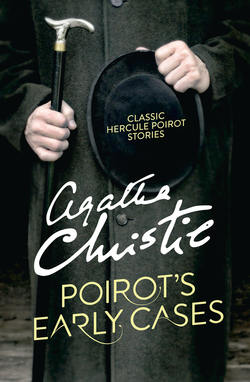Читать книгу Poirot’s Early Cases - Агата Кристи, Agatha Christie, Detection Club The - Страница 17
IV
ОглавлениеDr Adams was the typical genial red-faced country doctor of fiction. He received us politely enough, but at a hint of our errand, his red face became purple.
‘Damned nonsense! Damned nonsense, every word of it! Wasn’t I in attendance on the case? Gastritis—gastritis pure and simple. This town’s a hotbed of gossip—a lot of scandal-mongering old women get together and invent God knows what. They read these scurrilous rags of newspapers, and nothing will suit them but that someone in their town shall get poisoned too. They see a bottle of weed-killer on a shelf—and hey presto!—away goes their imagination with the bit between his teeth. I know Edward Pengelley—he wouldn’t poison his grandmother’s dog. And why should he poison his wife? Tell me that?’
‘There is one thing, M. le Docteur, that perhaps you do not know.’
And, very briefly, Poirot outlined the main facts of Mrs Pengelley’s visit to him. No one could have been more astonished than Dr Adams. His eyes almost started out of his head.
‘God bless my soul!’ he ejaculated. ‘The poor woman must have been mad. Why didn’t she speak to me? That was the proper thing to do.’
‘And have her fears ridiculed?’
‘Not at all, not at all. I hope I’ve got an open mind.’
Poirot looked at him and smiled. The physician was evidently more perturbed than he cared to admit. As we left the house, Poirot broke into a laugh.
‘He is as obstinate as a pig, that one. He has said it is gastritis; therefore it is gastritis! All the same, he has the mind uneasy.’
‘What’s our next step?’
‘A return to the inn, and a night of horror upon one of your English provincial beds, mon ami. It is a thing to make pity, the cheap English bed!’
‘And tomorrow?’
‘Rien à faire. We must return to town and await developments.’
‘That’s very tame,’ I said, disappointed. ‘Suppose there are none?’
‘There will be! I promise you that. Our old doctor may give as many certificates as he pleases. He cannot stop several hundred tongues from wagging. And they will wag to some purpose, I can tell you that!’
Our train for town left at eleven the following morning. Before we started for the station, Poirot expressed a wish to see Miss Freda Stanton, the niece mentioned to us by the dead woman. We found the house where she was lodging easily enough. With her was a tall, dark young man whom she introduced in some confusion as Mr Jacob Radnor.
Miss Freda Stanton was an extremely pretty girl of the old Cornish type—dark hair and eyes and rosy cheeks. There was a flash in those same dark eyes which told of a temper that it would not be wise to provoke.
‘Poor Auntie,’ she said, when Poirot had introduced himself, and explained his business. ‘It’s terribly sad. I’ve been wishing all the morning that I’d been kinder and more patient.’
‘You stood a great deal, Freda,’ interrupted Radnor.
‘Yes, Jacob, but I’ve got a sharp temper, I know. After all, it was only silliness on Auntie’s part. I ought to have just laughed and not minded. Of course, it’s all nonsense her thinking that Uncle was poisoning her. She was worse after any food he gave her—but I’m sure it was only from thinking about it. She made up her mind she would be, and then she was.’
‘What was the actual cause of your disagreement, mademoiselle?’
Miss Stanton hesitated, looking at Radnor. That young gentleman was quick to take the hint.
‘I must be getting along, Freda. See you this evening. Goodbye, gentlemen; you’re on your way to the station, I suppose?’
Poirot replied that we were, and Radnor departed.
‘You are affianced, is it not so?’ demanded Poirot, with a sly smile.
Freda Stanton blushed and admitted that such was the case.
‘And that was really the whole trouble with Auntie,’ she added.
‘She did not approve of the match for you?’
‘Oh, it wasn’t that so much. But you see, she—’ The girl came to a stop.
‘Yes?’ encouraged Poirot gently.
‘It seems rather a horrid thing to say about her—now she’s dead. But you’ll never understand unless I tell you. Auntie was absolutely infatuated with Jacob.’
‘Indeed?’
‘Yes, wasn’t it absurd? She was over fifty, and he’s not quite thirty! But there it was. She was silly about him! I had to tell her at last that it was me he was after—and she carried on dreadfully. She wouldn’t believe a word of it, and was so rude and insulting that it’s no wonder I lost my temper. I talked it over with Jacob, and we agreed that the best thing to do was for me to clear out for a bit till she came to her senses. Poor Auntie—I suppose she was in a queer state altogether.’
‘It would certainly seem so. Thank you, mademoiselle, for making things so clear to me.’
